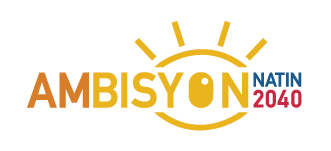(SunStar Philippines)
PRESIDENT Rodrigo Duterte has signed Executive Order (EO) 27 mandating all government agencies and instrumentalities, including local government units (LGUs), to implement the Philippine Development Plan (PDP) and the Public Investment Program (PIP) starting this year until 2022.
“The successful implementation of the PDP and PIP rests on the support of all the stakeholders,” the President said in EO 27 signed on June 1. The PDP, a first medium-term plan to operationalize long-term vision for development planning, aims to lay down a solid foundation for more inclusive growth, a high-trust and resilient society, and a globally competitive knowledge economy.
The country’s development program was approved by the National Economic and Development Authority (Neda) Board on February 20 this year, following a series of Cabinet-level and technical inter-agency and stakeholder consultations.
The PIP, on the other hand, would contain the priority programs to be implemented by the national government, based on the submissions of national government agencies and instrumentalities, including government-owned or -controlled corporations, which must all adhere to the PIP formulation guidelines issued by the Neda on January 20.
The formulation of the PIP would be completed by July this year and updated annually and simultaneously with the preparations for the annual national government budget, or as may be determined by Neda.
Under Section 1 of EO 27, all departments, offices and instrumentalities of the national government, including GOCCs, and the LGUs, “whether or not they receive funding support through the General Appropriations Act, are hereby directed to adopt and disseminate the PDP 2017-2022 and undertake efforts to its full implementation.”
All heads, departments, offices and instrumentalities of the national government were also directed to align their budgetary department or corporate programs with the strategies and activities identified in the PDP.
The EO tasked the Neda Secretariat to work together with various implementing agencies for the “prioritization and sequencing of identified strategies, policies, programs, and projects, including proposed legislation.”
The monitoring of outcomes and implementation would then be reported regularly to the appropriate Neda Board committees, existing Cabinet clusters, and inter-agency committees of the government.
The funds that would be used for the implementation of the EO will be taken from the Department of Budget and Management.
